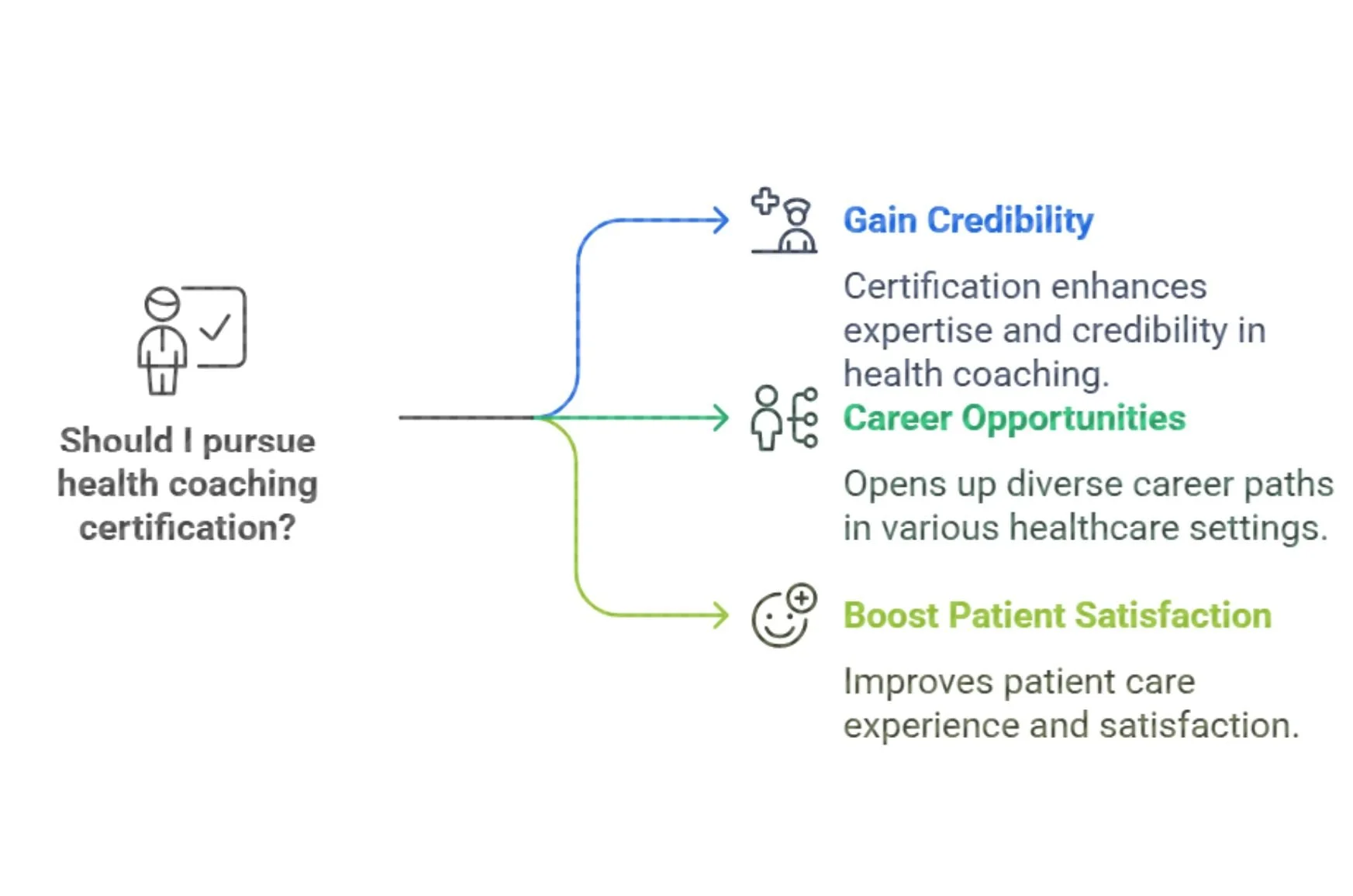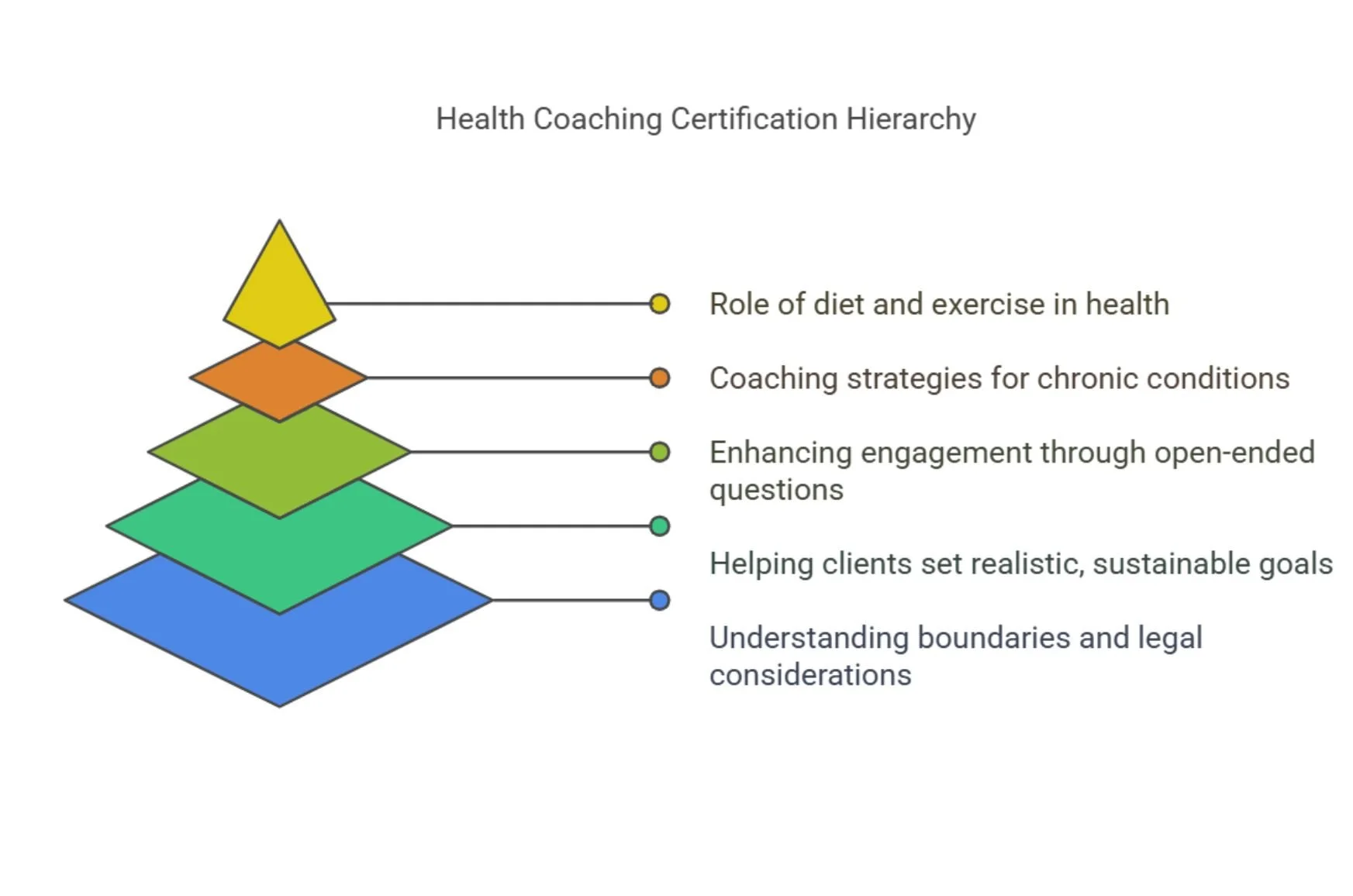Health Coaching Certification for Nurses and Clinicians
In today’s healthcare landscape, health coaching is no longer just a trend—it’s a necessity. As chronic diseases and lifestyle-related conditions rise, nurses and clinicians are stepping into coaching roles to help patients make sustainable health changes. But to truly stand out and maximize impact, certification is essential.
This guide will walk you through everything you need to know about health coaching certification for nurses and clinicians, the best programs in 2025, industry trends, career opportunities, and six surprising facts that most people don’t know.
Health Coaching vs. Traditional Healthcare
Traditional healthcare primarily focuses on diagnosing and treating illnesses. Health coaching takes a proactive approach, helping patients prevent diseases, manage chronic conditions, and adopt long-term healthy behaviors.
Unlike conventional medicine, health coaching empowers patients through behavioral psychology, motivation techniques, and goal-setting frameworks. Nurses and clinicians with coaching certification can:
Enhance patient engagement by making care plans more interactive.
Improve health outcomes by focusing on prevention.
Reduce hospital readmissions by supporting long-term health management.
Why Nurses and Clinicians Should Get Certified
With healthcare shifting toward preventive and patient-centered models, certified health coaches are in high demand. Studies show that patients working with health coaches are 2.5 times more likely to stick to treatment plans than those who don’t. Certification helps nurses and clinicians:
Gain credibility and expertise in health coaching.
Increase career opportunities in private practice, corporate wellness, telehealth, and hospitals.
Boost patient satisfaction by providing a more holistic care experience.
Top Health Coaching Certifications for Nurses and Clinicians in 2025
1. National Board for Health & Wellness Coaching (NBHWC)
Why it’s the best: The gold standard in the industry.
Duration: 6-12 months
Ideal for: Nurses, clinicians, and healthcare professionals looking for top-tier certification.
2. Duke Integrative Medicine Health Coach Training
Why it stands out: Focuses on evidence-based coaching techniques.
Duration: 9 months
Best for: Those looking to integrate coaching with traditional healthcare.
3. Mayo Clinic Health Coaching Program
What makes it unique: Taught by leading experts in the field.
Duration: 6 months
Best for: Nurses wanting to specialize in chronic disease management.
4. Wellcoaches School of Coaching
Key feature: Accredited by NBHWC & American College of Sports Medicine.
Duration: 18 weeks
Best for: Those looking for a fast yet comprehensive certification.
5. Functional Medicine Coaching Academy (FMCA)
Why it’s gaining popularity: Integrates nutrition, genetics, and lifestyle medicine.
Duration: 12 months
Ideal for: Nurses wanting to specialize in holistic and functional medicine.
Steps to Becoming a Certified Health Coach
1. Research Certification Programs
The first step in your journey is to thoroughly research and compare certification programs that align with your career goals. With the growing demand for health coaching, several options are available, but not all are created equal. Consider the following factors when evaluating programs:
Accreditation – Choose programs recognized by governing bodies like the National Board for Health & Wellness Coaching (NBHWC), the International Coach Federation (ICF), or the American Council on Exercise (ACE).
Curriculum – Ensure the coursework covers key topics such as motivational interviewing, behavioral psychology, nutrition science, and chronic disease management.
Format – Decide whether you prefer an online, in-person, or hybrid learning experience. Many programs now offer fully online training for convenience.
Duration & Flexibility – Programs vary from four months to a year. Some offer self-paced learning, while others have fixed schedules with live sessions.
Cost & Payment Plans – Tuition fees range from $3,000 to $8,000, but many programs provide installment plans, scholarships, or employer reimbursements.
2. Meet Eligibility Requirements
Before enrolling, check whether you meet the eligibility requirements for your chosen certification. While many programs prefer candidates with a healthcare background, some welcome professionals from related wellness fields.
Who Qualifies?
Registered Nurses (RNs), Nurse Practitioners (NPs), Licensed Practical Nurses (LPNs)
Physicians, Physician Assistants (PAs), Physical Therapists (PTs), Occupational Therapists (OTs)
Registered Dietitians (RDs), Nutritionists, and Fitness Trainers
Other health-related professionals with relevant experience
Do You Need a Medical Degree?
No, but having a healthcare background is beneficial. Some programs offer bridge courses for individuals transitioning into the field.
3. Enroll and Complete Training
Once you have selected the right program, enroll and start your coursework. A good certification will provide comprehensive training in both the science and psychology of behavior change.
What You’ll Learn:
Health Behavior Change Models – How to help clients set realistic, sustainable goals.
Motivational Interviewing Techniques – Enhancing patient engagement through open-ended questions and reflective listening.
Chronic Disease Management – Coaching strategies for conditions like diabetes, hypertension, obesity, and mental health.
Nutrition and Lifestyle Medicine – The role of diet, exercise, and stress management in health.
Coaching Ethics and Professionalism – Understanding boundaries and legal considerations.
How Long Does Training Take?
Accelerated programs: Four to six months (intensive format)
Standard programs: Nine to twelve months (part-time, ideal for working professionals)
Some courses require live practice sessions, so choose one that offers real-world coaching experience rather than just theory.
4. Gain Practical Experience
Many certification programs require hands-on training to help you build confidence and refine your coaching skills. This step is critical for becoming an effective health coach.
Ways to Gain Practical Experience:
Internships or Residency Programs – Partner with healthcare institutions, wellness centers, or private coaching practices.
Supervised Coaching Hours – Some certifications mandate 50-100 hours of coaching with real clients under supervision.
Volunteer Coaching – Work with nonprofits, community wellness initiatives, or corporate wellness programs to gain experience.
Role-Playing Exercises – Many programs offer simulated coaching sessions with instructors and peers.
Keeping a coaching logbook to document client interactions, challenges, and successes can be helpful for certification exams and future job applications.
5. Pass the Certification Exam
Most recognized health coaching programs require passing a final exam to demonstrate competency. This exam tests both theoretical knowledge and practical coaching skills.
What’s on the Exam?
Case Study Analysis – Applying coaching principles to real-world scenarios.
Behavior Change Techniques – Demonstrating effective coaching conversations.
Ethics and Professionalism – Understanding client confidentiality and industry guidelines.
Health & Wellness Science – Basics of nutrition, chronic disease, and lifestyle medicine.
Exam Formats:
Multiple-choice tests (computer-based or written)
Oral coaching assessments (live or recorded)
Practical coaching demonstrations (via video submissions)
Some exams require submitting case studies of real coaching sessions, so keeping records of your work during training is essential.
6. Maintain Certification
Once you’re certified, the journey doesn’t stop there. Most health coaching certifications require continuing education to stay up to date with new coaching techniques, emerging health trends, and industry regulations.
Ways to Maintain Certification:
Complete Continuing Education Units (CEUs) – Many programs require 30–50 hours of continuing education every two to three years.
Attend Health Coaching Conferences – Events like the Health & Wellness Coaching Summit or Integrative Healthcare Symposium provide industry insights.
Renew Your Certification – Some organizations require re-examinations or proof of practice every few years.
Specialize in a Niche – Consider advanced certifications in areas like functional medicine, diabetes coaching, or corporate wellness.
Join Professional Networks – Being part of organizations like NBHWC, ICF, or the American Holistic Health Association (AHHA) enhances credibility.
Some employers pay for continuing education, so check if your workplace offers reimbursement programs.
Six Lesser-Known Facts About Health Coaching Certification
Health coaching improves medication adherence by 75% – Certified health coaches help patients better understand and stick to their prescriptions.
Some insurance companies now reimburse for health coaching – In 2025, select U.S. states and private insurers are recognizing health coaching as a reimbursable service.
AI and digital platforms are revolutionizing health coaching – Personalized coaching apps are integrating AI-driven recommendations.
Health coaches can earn up to $100,000 annually – With demand skyrocketing, top-certified coaches charge premium rates for their services.
Corporate wellness programs are hiring health coaches more than ever – Fortune 500 companies are investing heavily in employee wellness.
Virtual coaching is now more popular than in-person coaching – 80% of coaching sessions are now conducted via telehealth platforms.
Conclusion
If you’re a nurse or clinician looking to expand your career, improve patient outcomes, and enter a fast-growing industry, getting certified in health coaching is one of the best decisions you can make in 2025.
For nurses and clinicians looking for a high-quality, evidence-based health coaching certification, the ANHCO (Advanced National Health Coaching Organization) program is one of the top choices in 2025. ANHCO is a globally recognized, accredited organization that provides a comprehensive curriculum tailored specifically for healthcare professionals.
Accredited by the National Board for Health & Wellness Coaching (NBHWC) – Meets the highest industry standards.
Flexible Learning Formats – Offers self-paced online courses, live instructor-led training, and hybrid learning to accommodate your schedule.
Real-World Coaching Experience – Includes supervised coaching hours, case studies, and patient interactions to build practical skills.
Specialized Certification Tracks – Choose from chronic disease coaching, corporate wellness, functional medicine coaching, and telehealth coaching to align with your career goals.
Affordable Payment Plans & Scholarships – Offers employer reimbursement options and installment plans to make certification more accessible.
Health coaching certification is more than just a credential—it’s a pathway to transforming healthcare. As the demand for personalized, preventive healthcare solutions continues to grow, certified health coaches play a vital role in bridging the gap between medical treatment and sustainable lifestyle changes.
FAQS
-
Health Coaching Certification for nurses and clinicians is a specialized credential that trains healthcare professionals in coaching techniques to help patients achieve better health outcomes. It equips them with skills in behavior change, nutrition, fitness, and overall wellness, allowing them to provide holistic, patient-centered care that goes beyond traditional medical treatments.
-
Pursuing a health coaching certification allows nurses and clinicians to expand their role in patient care by incorporating health and wellness strategies into their practice. It helps them build stronger, more supportive relationships with patients, empowering individuals to take an active role in their health and make sustainable lifestyle changes that improve overall well-being.
-
Health coaching certification enhances a nurse’s or clinician’s ability to:
Provide personalized, patient-centered care.
Support behavior change and motivate patients.
Improve patient compliance with treatment plans and lifestyle modifications.
Offer a more holistic approach to managing chronic conditions.
Increase job satisfaction by expanding their skills and scope of practice.
-
Nurses and clinicians learn several critical skills in health coaching certification programs, including:
Behavioral change techniques to help patients adopt healthy habits.
Motivational interviewing to enhance patient engagement.
Goal setting and creating actionable health plans.
Nutrition and fitness basics tailored to individual needs.
Communication and rapport-building skills for more effective patient relationships.
-
Health coaching certification complements traditional clinical practice by providing nurses and clinicians with additional tools to guide patients toward healthier behaviors. While medical interventions focus on diagnosis and treatment, health coaching helps patients make lasting lifestyle changes that enhance the effectiveness of medical care and prevent chronic diseases.
-
Yes, nurses and clinicians can apply health coaching techniques in a variety of settings, including:
Hospitals: Supporting patients post-discharge to ensure recovery and adherence to treatment.
Clinics: Helping patients manage chronic conditions like diabetes, hypertension, or obesity.
Community Health Programs: Offering wellness coaching and lifestyle management in community outreach settings.
Private Practice: Providing one-on-one coaching services to clients seeking health and wellness guidance.
-
Requirements typically include:
A valid nursing or clinical license.
Completion of a health coaching certification program accredited by reputable organizations.
Practical training hours, including patient interactions and coaching sessions.
Continuing education or professional development to maintain certification.
-
By integrating health coaching into their practice, nurses and clinicians can significantly improve patient outcomes. Health coaching provides continuous, personalized support, helping patients make lasting changes to their lifestyle, improve their adherence to treatment plans, and manage or prevent chronic conditions. This holistic approach fosters better health outcomes and higher patient satisfaction.




